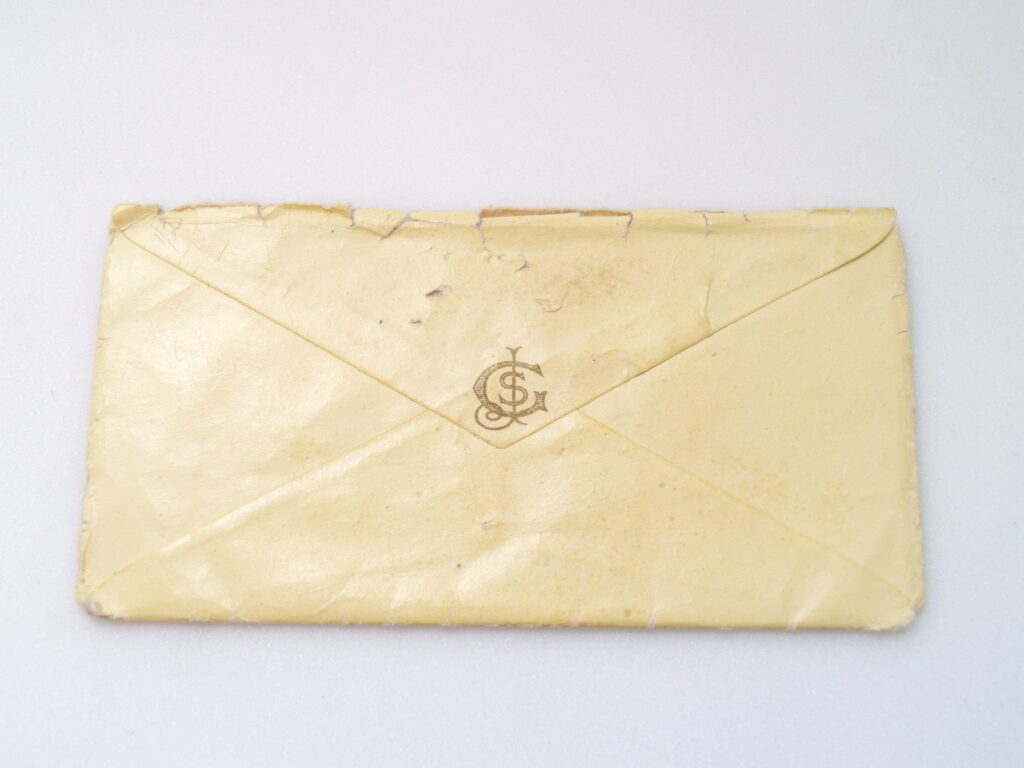
Courtesy of Wikimedia Commons and Auckland Museum. Licensed under COO 4.0.
My story in the Summer issue of the Review starts with a character receiving a letter from a boyfriend of twenty-five years ago, and one of the Review’s editors, in search of recommendations for this column, asked if I’d like to write about a piece of epistolary fiction that inspired me. I was pretty sure there wasn’t a particular inspiration, is the thing, and when the editor’s email arrived, I had a flu and a few degrees of fever, so I put her request aside and got back on my sofa and under my blanket, returning to The Demon Lover and Other Stories, which Elizabeth Bowen wrote during World War II. My husband gave me the book more than a decade ago, and for some reason, it was finally calling out to be read.
The first stories in the book are sketches of Londoners dislodged from their identities by aerial bombings. A recent New Yorker article about disaster care describes the small items of function and decoration in people’s lives—pencil sharpener, teakettle, photo in a frame—as the “furniture of self,” and many of Bowen’s characters find themselves feeling uncanny and disenchanted after the loss of items that once made up their context and setting. In the middle stories, Bowen goes at the problem from the other end, writing about people unsettled by the unexpected return of things that once gave them context. A woman inherits a skeleton clock that she is told she cared for passionately as a child but has no memory of. Another woman, in a nightclub on a boozy date, hears a dance tune that her father used to try to sing. And in the title story, “The Demon Lover,” a third woman, returning to her bomb-cracked, boarded-up house to rescue a few items, finds a letter from the man she was engaged to during World War I—twenty-five years prior.
The coincidental resonance/overlap with my own short story was eerie. Maybe I had read this story before and repressed it, the way Bowen’s heroine represses the memory of her skeleton clock? I don’t think so, though I’m at the age where that can’t be ruled out. Maybe twenty-five years is just a resonant interval, for me as well as for Bowen—it’s the time it takes for youth to turn into middle age. It’s also roughly the gap between World War I and II, which may be why it reappears in story after story of hers. As the reader advances through the collection, her stories turn out—more and more explicitly—to be ghost stories. A woman two-timing her husband starts to feel “disliked” by a presence in her bedroom. In perhaps the most beautiful story, “The Happy Autumn Fields,” a woman dozing in a bomb-shattered building dreams of having been another person altogether, in another century, and can’t shake the sense that her dreamed self is her real one.
In a postscript to the collection, Bowen writes about why the past seemed more vivid during World War II—why it haunted the present—and her language is weirdly evocative of what it felt like to live through COVID. “In war-time many people had strange deep intense dreams,” she writes.
I do not think that the desiccation, by war, of our day-to-day lives can be enough stressed. The outsize World War news was stupefying: headlines and broadcasts came down and down on us in hammerlike chops, with great impact but, oddly, little reverberation. The simple way to put it was: “One cannot take things in.” … All this pressure drove egotism underground, or made it whiten like grass under a stone. And self-expression in small ways stopped—the small ways had been so very small that we had not realized how much they amounted to. Planning fun, going places, choosing and buying things, dressing yourself up, and so on. All that stopped. You used to know what you were like from the things you liked, and chose. Now there was not what you liked, and you did not choose. Any little remaining choices and pleasures shot into new proportion and new value: people paid big money for little bunches of flowers.
I didn’t think this latest short story of mine was about COVID, but during the pandemic I was often reminded of the AIDS epidemic in the days before highly active antiretroviral therapy, which I lived through a bit more than twenty-five years ago. Maybe it is the case that, like Bowen, I was feeling a little haunted.
Caleb Crain is the author of Necessary Errors and Overthrow. His story “The Letter” appears in our Summer issue.
from The Paris Review https://ift.tt/ZXHtyGI
Comments
Post a Comment